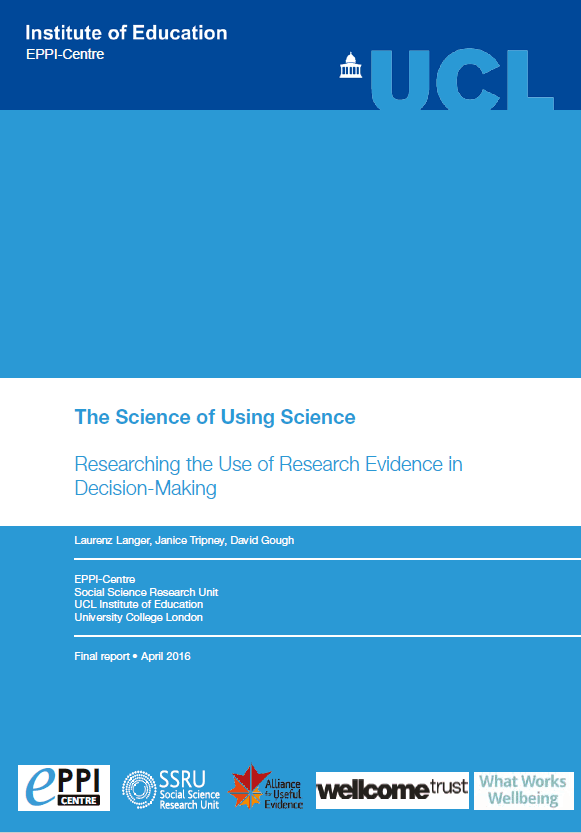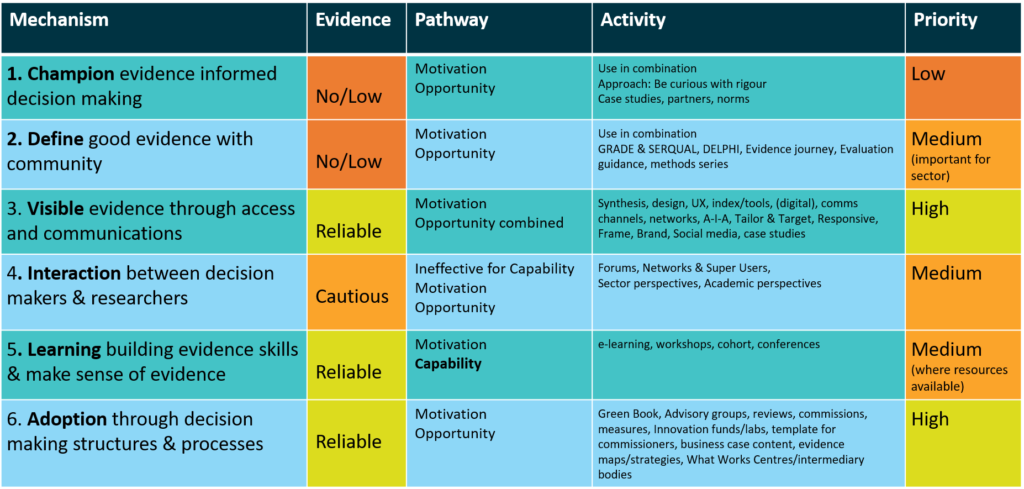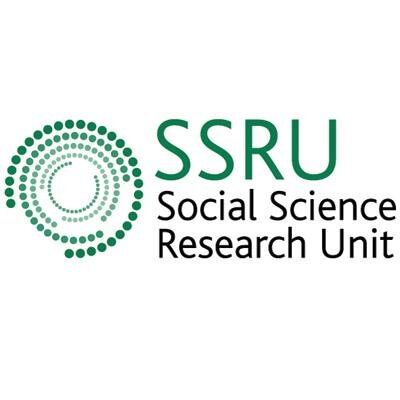The science of using science
Researching the use of research evidence in decision-making

Research evidence is just one factor that can influence decision-making at a policy and practice level. While various interventions have been developed to enhance and support the use of research evidence by decision-makers, it is unclear which interventions are effective.
Summary of the work
This research project set out to review the efficacy of interventions applied to increase decision-makers’ use of research in various decision arenas. The project also examined whether there is additional knowledge in the broader social science literature that is relevant to evidence-informed decision-making and could be applied to help support future interventions in this area.
The results of research studies can be one important component in decision-making by policymakers, professionals, and members of the public. However, such research evidence is not always considered in decision-making, even when relevant research is available.
Led by the EPPI-Centre at University College London, the aim of this research project was to review the evidence-base relevant to increasing the use of research evidence by decision-makers; in other words, to review one aspect of the science of using scientific knowledge.
This review:
- identified six mechanisms that are used to help knowledge use;
- rated the quality of the evidence supporting intervention under each mechanisms and combination of mechanisms;
- identified behavioural insights useful to understanding the role of each mechanism using the Capability, Motivation and Opportunity model. Other models of behavioural insights are also applied such as EAST in the communications mechanism.
The framework: six categories of evidence-use mechanisms
Briefly, six underlying mechanisms of enabling research use in decision-making were drawn from the literature, and used to group the interventions studied. These are summarised below:
- Awareness – Building awareness and positive attitudes towards evidence use
- Agree – Building mutual understanding and agreement on policy-relevant questions and the kind of evidence needed to answer them
- Access and communication – Providing communication of, and access to, evidence
- Interact – Facilitating interactions between decision-makers and researchers
- Skills – Supporting decision-makers to develop skills accessing and making sense of evidence
- Structure and process – Influencing decision-making structures and processes

Find the full report linked below.
![]()
[gravityform id=1 title=true description=true ajax=true tabindex=49]




